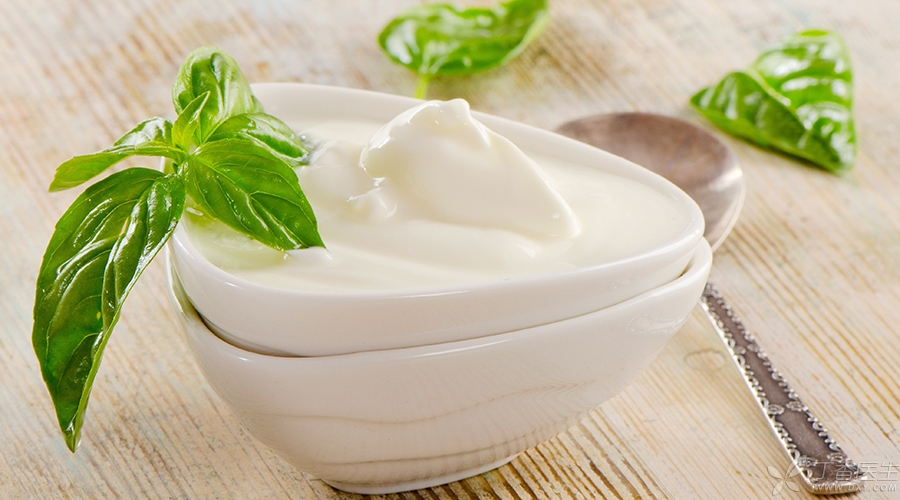
As one of the most common dairy products, The yogurt, which is fermented with milk as raw material, not only keeps the nutritional value of milk perfectly, but also contains a lot of active lactic acid bacteria, B vitamins, vitamin A, potassium, phosphorus, magnesium, zinc and other nutrients, and is rich in the unique flavor and delicate taste of yogurt, which has always been loved by people (eaters) and people (goods). The yogurt, which is fermented with milk as raw material, is rich in calcium, vitamin D and protein, and is also rich in nutrients such as potassium, phosphorus, magnesium and zinc.
Many parents, when enjoying yogurt that is delicious and nutritious, always want their babies to taste it together.
However, how old can children start drinking yogurt?
My baby is a little more than eight months old. Can I drink yogurt? How old is the child to drink yogurt?
How old can babies drink yogurt?
Babies can drink yogurt as early as 6 months old, which is consistent with the time when supplementary foods are added to babies. Yogurt can be used as supplementary foods for babies to try to contact.
Although grains such as rice flour and rice paste are often used as the first supplementary food to be added to the baby, the current feeding guidelines believe that as long as the baby can already add supplementary food, the first food to be tried for the baby can start from any food category, including dairy products.
In addition, some studies have shown that the introduction of yogurt into baby’s food in the first year helps reduce the possibility of allergic dermatitis in childhood.
Breast milk or formula milk powder is still the baby’s [staple food]
For babies aged 6-12 months, breast milk or formula milk powder is still the main source of nutrition for babies.
The American Association of Pediatrics recommends exclusive breast milk (or formula milk powder) feeding for infants within 6 months old. Even if solid food is introduced into the baby’s food, breast milk or formula milk powder feeding should be continued until the baby reaches 12 months old.
In the first year, breast milk or formula milk powder is still the main source of nutrition for the baby. Both yogurt and other supplementary foods should pay attention to the dosage, which should be based on the premise of not affecting the baby’s consumption of breast milk or formula milk powder. A small amount of breast milk or formula milk powder is only part of the baby’s multi-nutritional diet.
Can feed yogurt to the baby, what about milk?
Although babies can try to add yogurt at 6 months old, it is not recommended for babies under 12 months old to drink milk.
On the one hand, because breast milk or formula milk powder is the main source of iron intake for babies at this stage, if the baby is fed milk, milk as liquid, it is easier for the baby to drink more, and excessive calcium in milk will also affect iron absorption. However, yogurt is unlikely to have such excessive drinking.
On the other hand, some nutrients needed by babies aged 6 to 12 months are not available in milk. Breast milk or formula milk powder is better than milk at this stage. Moreover, feeding the baby milk will also affect his eating breast milk or formula milk powder, and it is best not to feed the baby milk in the first year.
Therefore, yogurt can be used as a small amount of supplementary food for 6-month-old babies, while milk is best given to babies after 12 months.
Precautions for Giving Babies Yogurt:
1. If the baby has confirmed that he is allergic to milk protein or has other symptoms of allergy, he can postpone adding yogurt to the baby or consult a doctor before adding yogurt.
2. As a supplementary food, after trying yogurt for your baby, at least three days later, introduce the next new food. During this period of time when your baby adapts to yogurt, you need to carefully observe your baby’s reaction to yogurt.
What kind of yogurt do you choose for your baby?
1. It is better to choose the original sugar-free whole-fat yogurt for the yogurt added to the baby, instead of adding sugar and sweetener.There is no need to choose the so-called [children’s yogurt] sold on the market, which often has additional sugar added.
2. Low-fat or non-fat yogurt is not suitable for babies either. For babies of this age group, energy from fat is needed.
3. For babies under one year old, do not use honey to flavor yogurt. Honey may cause babies to be infected with Clostridium botulinum.
4. If you want to flavor yogurt, you can add some fruits to yogurt, but you need to ensure that the added fruits have been tasted and accepted by your baby.
5. Greek yogurt is a good choice for babies. Greek yogurt will filter out most of the liquid during the production process, and lactic acid will be taken away by most of the filtered liquid. The acidity will be much lower, which is easier for babies to accept, and the texture of yogurt will be thicker due to the reduction of water content.
The preparation method of Greek yogurt is attached:
1. Prepare the filter screen and gauze, add 4-6 layers of gauze on the filter screen and fix them, and then fix the filter screen on a large bowl.
2. Pour the original yogurt (either made or bought) on gauze to filter whey.
3. Put it into the refrigerator and filter until no whey is filtered out and the yogurt on the gauze becomes as thick as cheese.
Fill the filtered yogurt out and put it in a sealed fresh-keeping box for refrigeration.
